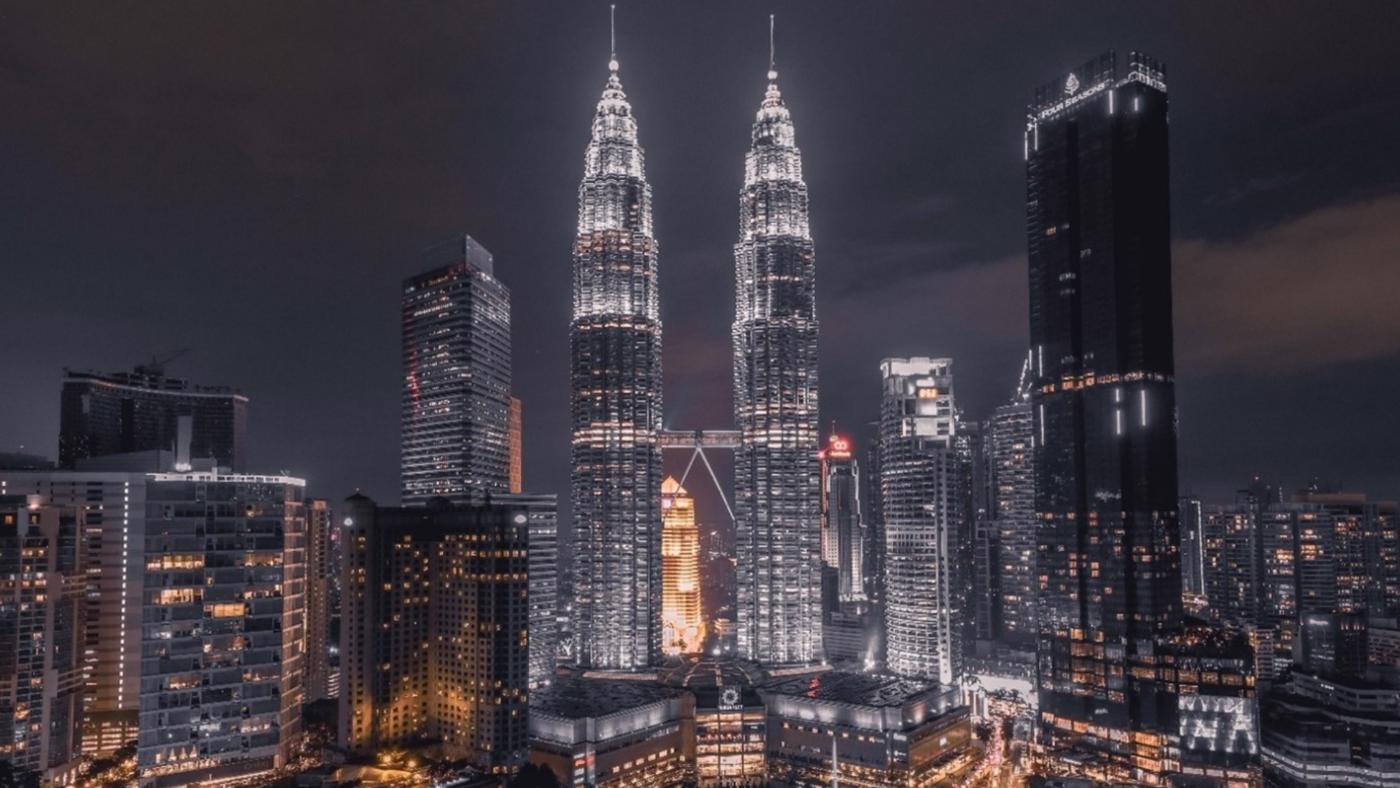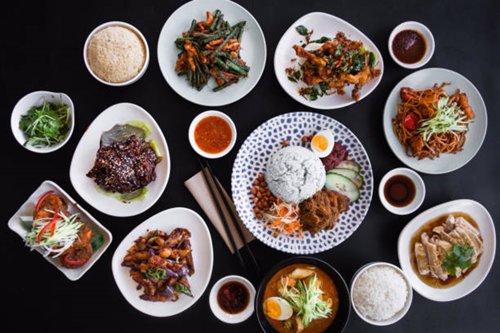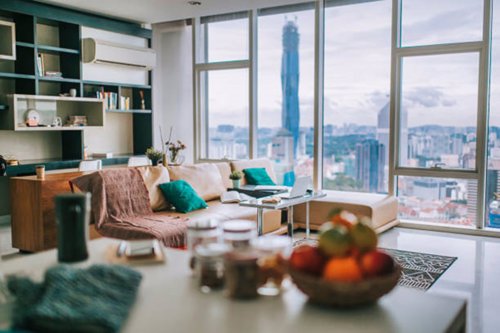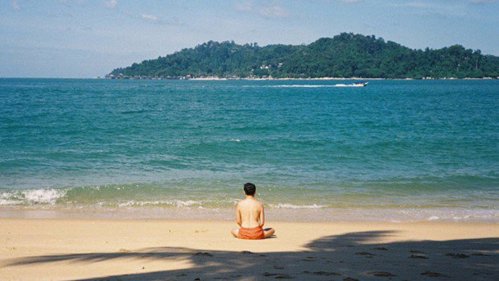5 Reasons to Work in Malaysia If You're Korean
1 Feb 2023
3 min read

Have you ever wanted to work abroad?
The idea of starting a new life elsewhere has probably crossed most people’s minds, but thoughts of not fitting in, not speaking the language and high living costs might have put those exciting thoughts to a screeching halt.
Well, fret not, because this guide is here to ease your worries and aid you in your decision-making!
Let me introduce to you, Malaysia.
From shining city lights to pristine beaches, travellers and expatriates alike are guaranteed to be in for a treat. Located slightly north of the equator between Indonesia, Thailand, Cambodia and Vietnam, there are many reasons as to why Malaysia was one of 30 countries awarded “Best In Travel 2023” by The Lonely Planet, and topped Preply’s chart as “Best cities for expats to work and live 2022”.
Here are our top 5 reasons why you should consider working in this fascinating South-East Asian country:
1. Culture

Often dubbed a cultural melting pot, Malaysia is unique for their cultural diversity. One may be confused with the different races living in Malaysia, so here’s a quick history lesson to understand better!
Back in the late 1800s, when Malaysia was under British colonial rule, many Chinese and Indian nationals were brought in to work as tin miners and laborers at rubber plantations. These workers assimilated with the local culture, and as a result, Malaysia today has a unique culture that boasts a plethora of customs and traditions from different races and communities. Along with the local natives and Malay communities that make up 70% of the population, Malaysian Chinese and Indians make up the remaining 30%, with 23% and 7% respectively. This contributes to a diverse workforce where all races work in harmony while presenting a wide range of different perspectives and ideas, making the workplace an interesting environment for expatriates to experience!
The fun part is that with such an abundance of culture, festive seasons are important occasions in Malaysia, and you’ll have the opportunity to experience all the different events and traditions of different races among peers and colleagues!
2. Food

Malaysians LOVE eating, and honestly, with such diverse culture and multiracial background, it’s no wonder Malaysia has such a wide array of different cuisines for foreigners to indulge in!
In fact, Malaysia’s capital, Kuala Lumpur, was featured in The Lonely Planet’s “Best in Travel 2023” for the “Eat” category, so you can certainly expect a multitude of flavors from the different varieties of local spices and seasonings here! Originating from different ethnics of the local Malay, Chinese and Indian communities, popular favourites such as Nasi Lemak, Nasi Kandar, Curry Laksa, Bah Kut Teh, Roti Canai, Banana Leaf Rice, Hainanese Chicken Rice, Char Keoy Teow, Nasi Kerabu and Kaya Toast are just a few in the long list of food that can be found in Malaysian hawker stalls or restaurants that will definitely be an exciting and mouth-watering experience for all.
Besides local food, a huge variety of cuisines can be found in Malaysia, including Thai, Chinese (from China), Japanese, Vietnamese, Arabic, Western, and of course, Korean! Mont Kiara and Ampang are well-known for their Korean communities, where both locals and Korean expats can enjoy the abundance of Korean restaurants and marts.
Fun fact if you’re a K-Pop fan: Han from Stray Kids LOVES Bah Kut Teh; if you’re a STAY, you might have heard him talk about his life in Malaysia in an episode of 2 Kids Room with his bandmate, Lee Know!

3. Language
Did you know it’s normal for Malaysians to speak at least 2 or more languages? Take a walk at a pasar malam (night market) and you’ll hear a slew of different languages from all directions.
That’s because despite Malay, or Bahasa Malaysia, being the national language, English is very commonly spoken in Malaysia as it is a compulsory subject taught in Malaysian schools. According to EF’s English Proficiency Index 2022, Malaysia ranks 24th out of 111 countries, and 3rd in Asia in terms of English proficiency. This is one of the reasons that Malaysia is also a popular destination as an educational hub for Koreans, with many expatriates bringing their children to enrol them in international schools. So, if you’re an English speaker or seeking to enhance your English language skills, it’s a great place to settle in and learn!
Besides that, similar to satoori (사투리) in Korea, local communities in Malaysia have their own dialects as well. Among the Chinese community, Cantonese, Hokkien and Hakka are the most widely spoken dialects, whereas Indians predominantly speak Tamil. For the Malays, there are regional dialects such as Kelantanese, Terengganuan, and more.
Unique to Malaysia, there is also a language known as Bahasa Rojak, which refers to the way Malaysians mix languages when speaking. Whereas Konglish loans words from English, Bahasa Rojak uses words and phrases from the different languages and dialects spoken in Malaysia – kind of like a puzzle! For instance, a sentence of Bahasa Rojak may consist of English, Malay, Mandarin and even some Chinese dialects: “Boss, boleh dapao two packs of hor fun ah?” [Boss (referring to the owner/employee at an eatery), can I take away two packs of rice noodles? 사장님, 칼국수 두 개 포장해 주시겠어요? ]
Lastly, Malaysia has been very much impacted by the Korean hallyu wave as well; you’ll definitely meet a Korean culture enthusiast or fellow K-Pop fan who will be more than excited to greet you with an Annyeonghaseyo! 안녕하세요! and be friends with you. There are also many language schools offering Korean classes and TOPIK courses, so you just might meet a non-native Korean speaker too!
4. Cost of Living

Compared to countries like Singapore, Japan, and Korea, the cost of living in Malaysia can be relatively lower. Taking into account the salary package typically offered to expatriates from East-Asian countries, it can definitely be an added advantage. For instance, the average rent for a 1-bedroom apartment equipped with facilities such as a gym and swimming pool in the city (Kuala Lumpur) may cost around RM2,000, whereas the same living conditions in Korea may call for rent costing around 900,000 KRW, which is roughly equivalent to around RM3,100.
Apart from rent, other living costs such as transportation and groceries are also generally cheaper. Because Malaysia is a tropical country, fruits such as mangoes, mangosteen, and papayas cost only a fraction of the price it would be in Korea since they are produced locally and not imported. Public transportation in Malaysia may not be as advanced as Korea’s at the moment, but there are ongoing projects to expand the subway line and the recently built MRTs have definitely been a game-changer. Nevertheless, fares are still cheaper, with a one-way trip by train costing around RM3.50, and mobility services such as Grab and Indrive cost much less than the conventional metered taxi. If you choose to drive, petrol prices are significantly cheaper as Malaysia is an oil-producing country.
5. Weather and Location

If you’re someone who prefers sunny skies and warm weather, Malaysia has the perfect climate for you.
Temperatures in countries with four seasons can have quite extreme weather, especially when it comes to bitterly cold winters. Due to its geographical location, Malaysia has a constant tropical rainforest climate that’s generally warm and humid. You might imagine this to be summer all year long, with scorching hot weather, but rainfall is a common occurrence throughout the year with higher and more frequent rain during the monsoon seasons. For that reason, the weather in Malaysia is not as severe as in four-season countries and may provide a more comfortable stay to those who prefer warmth over the cold.
Perhaps one of the best parts of living in a country with a fixed climate is the amount of money you get to save on your skincare and wardrobe – it certainly helps with cutting the costs of updating and matching your wardrobe to different seasons. The consistent weather also makes it easy to make travel plans and enjoy local trips to beaches and other areas on the coast. Thanks to Malaysia’s strategic location in the middle of Southeast Asia, this means affordable weekend trips overseas to Indonesia, Thailand, Vietnam, the Philippines, and many other countries are also very feasible!
All in all, there are many reasons for Koreans to work and live in Malaysia. With good food, weather, and most importantly, an affordable cost of living, Malaysia is a truly unique country that has the potential to be your home away from home, as it has become for so many others.
Interested in starting a career in Malaysia? Reach out to us today!
